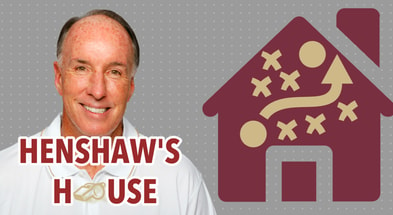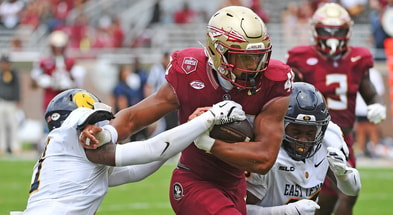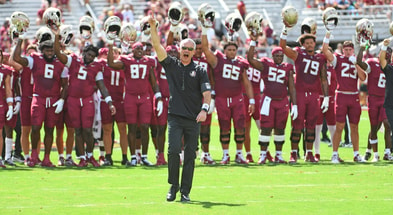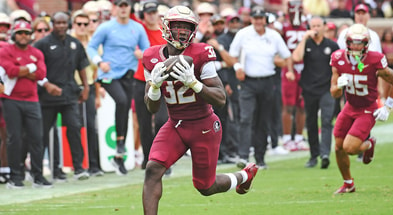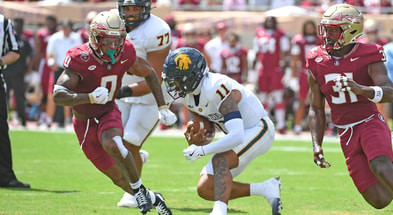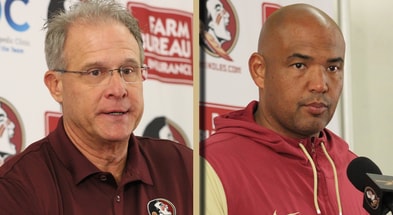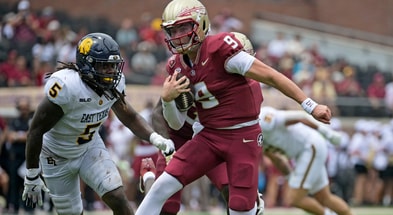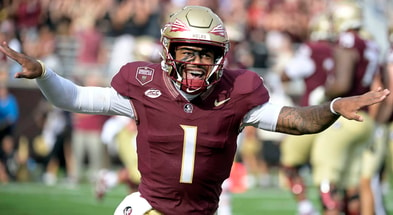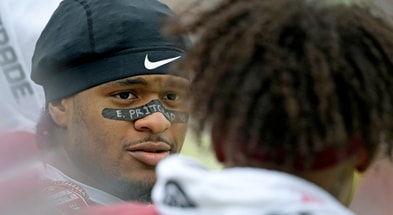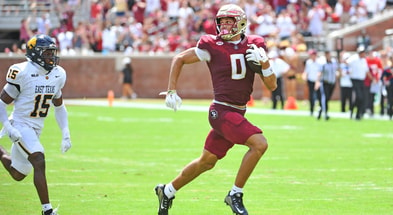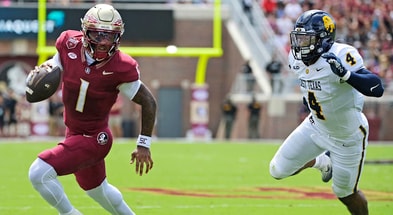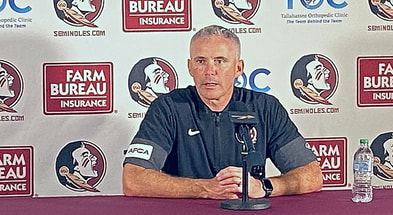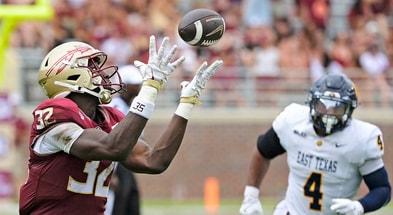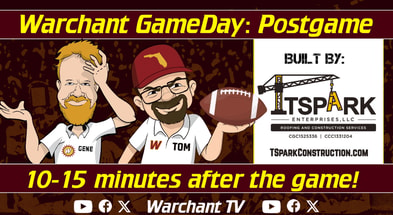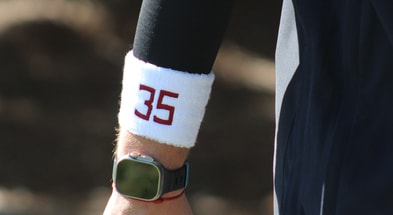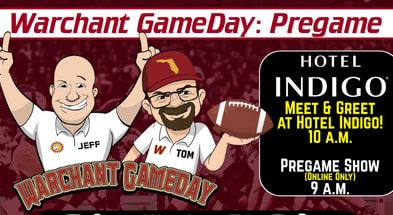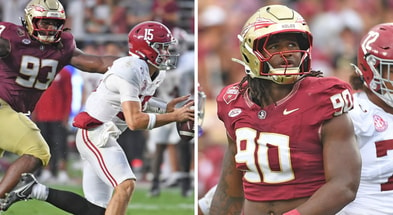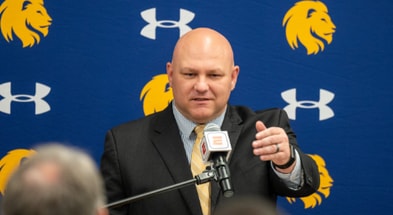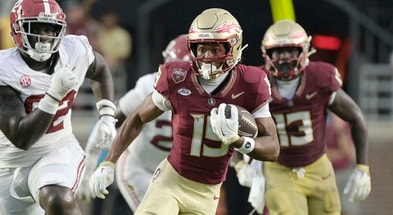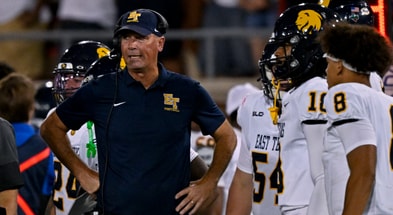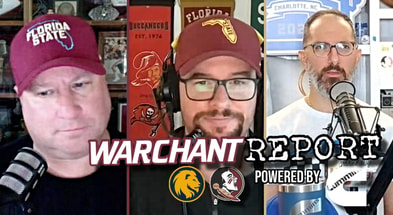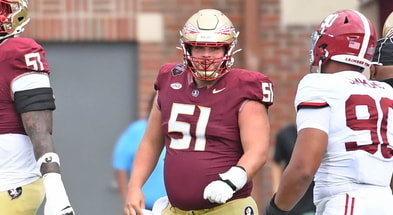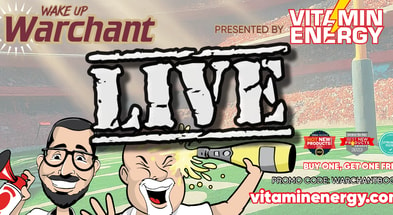Thirty years later, remembering Bill McGrotha
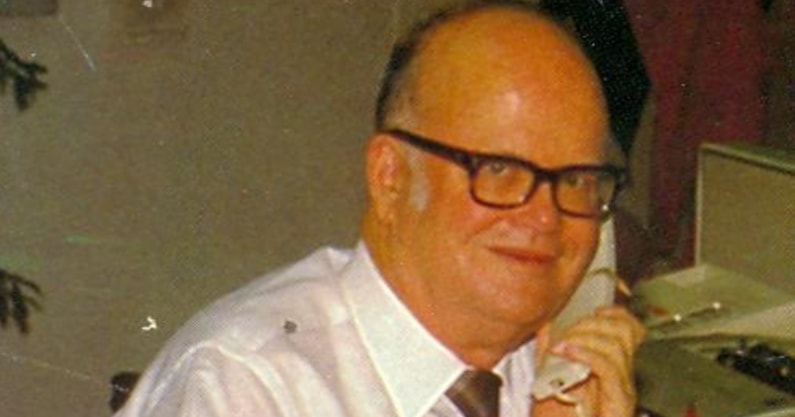
Old Dad left us 30 years ago this week – and it still hurts to remember all we have missed since he died.
For those who grew up, or simply found themselves residing, in Tallahassee any time between 1953 and 1993, you knew Old Dad. You saw his face in the Tallahassee Democrat three times a week. You read his Sunday columns and tried not to fast-forward to the final paragraph, where he shared his view of the ever-changing world around him through a quip at either his or one of his loved one’s expenses.
With just a few keystrokes, Bill McGrotha simply had a way of connecting with all of us.
“He has always tried to take one day at a time but every now and then, says Old Dad, it is like they are trying to double-team him.”
“His son-in-law approaches his finances exactly like he does golf, reckons Old Dad, which is to say the moment he gets out of one hole, he heads straight for another.”
“By the time he figured jogging really wasn’t his thing, says Old Dad, he was faced with one heck of a walk home.”
Most seasoned Florida State fans will remember Bill for who he was or what he was. He was the Democrat’s sports editor for 40 years. He was the trusted voice for readers – and for coaches and sports figures in the Tallahassee community. He told the stories of all the greats who came through Tallahassee, from legendary coaches like Jake Gaither and Bobby Bowden, to world-class athletes like Bob Hayes, Hubert Green and dozens and dozens of others.
He connected these coaches and athletes to readers in such a way where the focus was rarely on the accomplishments. He wanted us to know the person, not the resume. He dug deep into his interviews, asking the most personal of questions to make sure he understood with whom he was speaking. But he treated their personal stories with compassion and respect – like an Old Dad should.
To steal a line from the wonderful obituary written by Gerald Ensley 30 years ago, Bill’s approach to journalism was simple: “If you can’t tell it like it is, don’t tell it like it ain’t.” Bill’s work earned him enshrinement in the Tallahassee Sports Hall of Fame, the Florida Sports Hall of Fame, and the FSU Sports Hall of Fame. The press box at Doak Campbell Stadium is named for Bill, and rightfully so. His typewriter still sits in the hallway.
But as much as I respect who he was and what he was, it’s how he was I treasure most.
Bill McGrotha gave me my first job in journalism. It was November of 1986, and I was 16 years old. I had somehow mustered up enough courage to call him and ask if he would give me a chance to write for the newspaper. As the words left my mouth, I just knew they would be met with laughter or hostility. I got neither.
Bill instead invited me to meet with him in the newsroom. He introduced me to Tommy Carnes, who ran the day-to-day operations of the Democrat’s sports department. With Bill’s blessing and Tommy’s approval, I covered my first sporting event two days later – a high school basketball game between Lincoln and Godby. I was thrilled to cash that $15 paycheck, and even more excited when I was offered more assignments.
Back then, I had to go to the newsroom to write my articles. I didn’t have a laptop or a home computer, and the internet was still just a thought in Al Gore’s brain. Every time I showed up to write, Tommy had me sit at Bill’s workstation – because Bill didn’t work in the newsroom at night.
It had become a routine for me. I knew how to log in to the mainframe computer sitting at Bill’s desk, and that’s where I wrote my articles. Until one Saturday morning, when I was asked to cover an event that finished early. I showed up to an empty newsroom to write my article and sat down at Bill’s desk.
I never heard him enter the room.
“You’re in my seat,” I heard him say.
He wasn’t angry, but Bill wasn’t exactly giddy to see me at his desk. I don’t think he remembered who I was.
It’s hard to explain the train wreck that happened next.
Long story short, the Democrat back then used a mainframe computer system called ATEX. All I knew about that system were the few things I needed to know: How to log in, how to open a new file, how to type in that file, and how to save that file.
When Bill showed up, I had to save my file and log out of the terminal at his desk. I moved to another desk but didn’t know how to find the article I was working on in the system. With the patience of, well, a pissed-off old dad, Bill helped me navigate the ATEX system so I could file my story.
The memories of my interactions with Bill have faded through the years. I have a few stories I will share in a bit, but most of what I remember was his writing. He just had a gift for making words flow – for bringing readers into his world, into his pacing, and taking them for a ride. He did so many of the things you’re taught not to do in professional journalism, but it worked. And, at times, it was beautiful.
Here’s how he began a 1990 column on the former head coach of a team that was a few days away from playing a game at Florida State:
When in 1986 he took his football players to Florida for a game, he enlightened them on some of the breaking news of that time. “Did you men know that s.o.b. Gadhafi went to Florida!” he said, approximately.
And when he brought those players to Florida State in 1988, he whispered to them that Noriega was once a Seminole.
“Heck, it didn’t do no good,” said Erskine Russell. “I remember at Florida it took me 10 minutes to explain to them who Gadhafi was.”
How many things are wrong with that sample? Have you ever approximately said anything? I don’t think I have, either. Bill doesn’t identify the speaker until the second quote – and, even then, he only uses a full name with no title or description. He uses last names only to introduce Gadhafi and Noriega – not placing their first names in parentheses. We just jump right into an anecdote and sort out the details later. But it works. It starts an incredible conversation between Bill and his readers.
Here’s how he began a column he filed from SEC media days in 1986:
Each morning in Oxford, Miss., at a place called Scottie’s, the old roosters gather.
They meet, over coffee and country breakfasts, to cluck a lot and crow a little. Everybody knows Scottie’s, where Ronald Reagan once dropped in and George Bush a couple years after.
On a recent day, Scottie’s was particularly abuzz.
One of the roosters had checked in with a mighty interesting report. It went something like this.
“To cluck a lot and crow a little” – how fun is that? We just don’t see stories written this way today, especially in this digital age where the goal is to capture a reader as quickly as possible. Too often today, it’s a sudden shot at the beginning. Some sort of quick anecdote with a solid punchline or a swerve that leads the reader one way before quickly racing down a different path. Rarely do we read stories where the author is fully committed to setting a scene before the action starts. Often, the details of the scene are sprinkled throughout the story. That’s where Bill was different. He forced himself to observe his subject before he started any interview. And he shared what he saw with readers.
Sitting across at the restaurant table, she wore a silver-and-turquoise ring on her right hand, a plain gold chain around her neck, and gold hoop earrings. Not much makeup.
She had a nice smile, but it was awhile in showing up.
Read that again: “She had a nice smile, but it was awhile in showing up.” It reads like a Mike Hammer script. And it says so much without really saying much at all. I don’t think that line would get through many editors today, but I love the simplicity of it.
Here’s one more:
After negotiating the Brunswick stew in par, Hubert Green addressed the baked breast of chicken. But he was under-clubbed.
He tried the plastic knife, gave up. He picked up a piece and bit at it, gave up. Finally, he decided that he had an unplayable lie. So he let the chicken be.
Pro golf’s leading money-winner apparently expects – if one may accurately read between the spoken lines – the course of the Atlanta Athletic Club to be somewhat less tough. He teed off at 9:45 this morning with Gary Player and Mark Hayes as the 76th U.S. Open got started.
In two short paragraphs, we are witnesses to a star golfer’s struggle to cut a piece of chicken with a plastic knife and we’re told he was “under-clubbed” and facing an “unplayable lie.” Just beautiful imagery. This is how Bill wrote, and it’s why he was so much fun to read. Not every column he wrote was sensational. Some of them were like what many of us write – serviceable, at best. We all have average days on the job; Bill was no exception. But on his good days, when he was in a groove, he could paint with the best of them.
Bill’s best stories didn’t always show up in print. But I was lucky enough to be in the audience when some were told. Bill’s eyesight was horrible, and he did not drive at night. So that meant I would pick him up before home games and drive him to the stadium. One of his sons usually stuck around long enough after the games to drive him home.
Top 10
- 1New
JP Poll Top 20
Big shakeup after Week 2
- 2
Heisman Odds shakeup
Big movement among favorites
- 3Hot
Eli Drinkwitz comes clean
Knew rule was broken
- 4
Deion Sanders
Fires back at media
- 5Trending
Big 12 punishes ref crew
Costly mistake in Kansas-Mizzou
Get the Daily On3 Newsletter in your inbox every morning
By clicking "Subscribe to Newsletter", I agree to On3's Privacy Notice, Terms, and use of my personal information described therein.
Our drives to the stadium went exactly the way you imagine. The young punk in the driver’s seat peppering the old guy with every question possible. Asking him for stories. Asking him for feedback. Asking him for career advice. The most important lesson I learned during those Driving Mr. Bill rides is something I still follow to this day. (Ask my wife if you don’t believe me.) Back then, you entered the media parking area off Stadium Drive, right under the old Pensacola Street bridge. The lot filled up quickly, and I always tried to pull into the first spot I saw. Every single time. And every single time, Bill would stop me by saying, “There’s always room up front.”
And there was. I don’t know if it was McGrotha Magic or if it was an unwritten FSU rule that decreed one spot up front had to be left unoccupied until Bill showed up. But I swear there was always a parking spot right up front waiting for us. Every single time.
My favorite part of game days with Bill was walking into the stadium with him. Today, he would have to stop for dozens of selfies before he could get to the safety of the press box. But back then, we didn’t worry about that. As Bill walked through a tailgate party, you would hear a murmur with every step. People would shout his name or say hey to him, or nudge their buddy to make sure the proper respect was paid. Grown men would hide their beer from him like nervous teenagers. They’d shake his hand and keep their other one behind their back so Bill couldn’t see that cold soldier they were working on. They didn’t want to get busted drinking by Old Dad.
Bill’s last season covering Florida State games was in 1992. I sat between him and Steve Ellis in the press box for every one of those games. The night before the Georgia Tech game in Atlanta that year (the Charlie Ward game), the three of us ate at Morton’s. I was a broke college kid who couldn’t afford a single thing on that menu, but I was told to order what I wanted. We sat there for 2-3 hours, eating the best steak I had ever tasted and pounding drinks.
I think Steve’s plan was to pick up the tab, but Bill beat him to the check. I have no idea how much the final tally was, but I know for a fact Bill submitted it to the Democrat on his expense report. The newspaper paid for us to get drunk together that night, and since Bill and Steve have both passed and I no longer work there, I can finally say that publicly.
The last football game Bill covered was the Orange Bowl at the end of the ’92 season. Two days before that game, we had finished filing our stories for the day from Miami, and Bill called my room to ask me to join him at the hotel bar. We started drinking at 4 o’clock that afternoon, and we didn’t stop until midnight. No exaggeration. We never ate dinner. We only left the bar when nature forced us to hit pause on the conversation.
For eight hours, I sat at that bar with Bill McGrotha and drank. He was downing scotch on the rocks with a twist of lime, and I was chugging beers from a bottle. It wasn’t a guzzling contest. It was more like a gentleman’s social hour. And Bill emptied his vault of stories. I learned how he ended up working in Tallahassee. I learned why he never left. I learned why Miami was always his favorite road trip. I learned Old Dad had a wild streak in him I never thought possible.
When last call forced us to call it quits that night, I actually saw the final tally. Our bill was $170. I was horrified. I pulled out all the money I had on me – a $20 bill – and threw it on the bar. It was the last laugh I ever got from Bill. He threw it back at me. The Democrat paid that one, too – and we made sure they got their money’s worth.
Bill died less than a month after that Orange Bowl, in late January 1993 — 11 months before Florida State and Bobby Bowden would win their first national championship in that same stadium.
If I remember correctly, he underwent bypass surgery and never recovered. I like to think that last Orange Bowl trip went exactly the way Bill wanted. The eight-hour bar session was initiated by him. Right before kickoff, Bill had one of our photographers come to the press box to take a picture of him as he was sitting with the field in the background. That photo appeared in FSU’s 1993 media guide. Thirty years later, I’m still convinced Bill knew in that moment he had made it to last call for the final time.
I never once underestimated Bill’s place in Tallahassee history, but I realized at his funeral just how respected and beloved he truly was.
Bobby Bowden delivered the eulogy. Coach Bowden was joined by Jake Gaither as a pallbearer. Two of the most successful college football coaches of all time helped carry the local sports editor’s coffin out of the church and to the grave. Coach Gaither was 91 years old when Bill died. He could barely walk himself. But his hand never left that coffin as it was carried out of the church. It was an amazing scene – and the most powerful sign of respect Coach Gaither could possibly deliver.
I’m not a memorabilia and keepsakes kind of guy, but I asked Bill to sign a copy of his, “Seminoles! The First 40 Years,” book for my dad, who was one of the first male students to enroll at FSU in 1947. Bill had written the book to document the early years of Florida State’s football program, and I needed a cheap Christmas present for my dad. When my dad died in 2011, I searched all over his house for that book. It’s nowhere to be found. It’s one of the very few treasures from my days covering FSU football I wish like hell I still had. Bill signed the inside cover:
“To the father of a damn fine sportswriter, Bill McGrotha.”
Back at ya, Bill, and thanks. Next round is on me.
Jim Lamar is a former sports editor of the Tallahassee Democrat and a former general manager of The Osceola. He lives in Tallahassee and works in communications.
Talk about this story with other die-hard FSU football fans on the Tribal Council.

